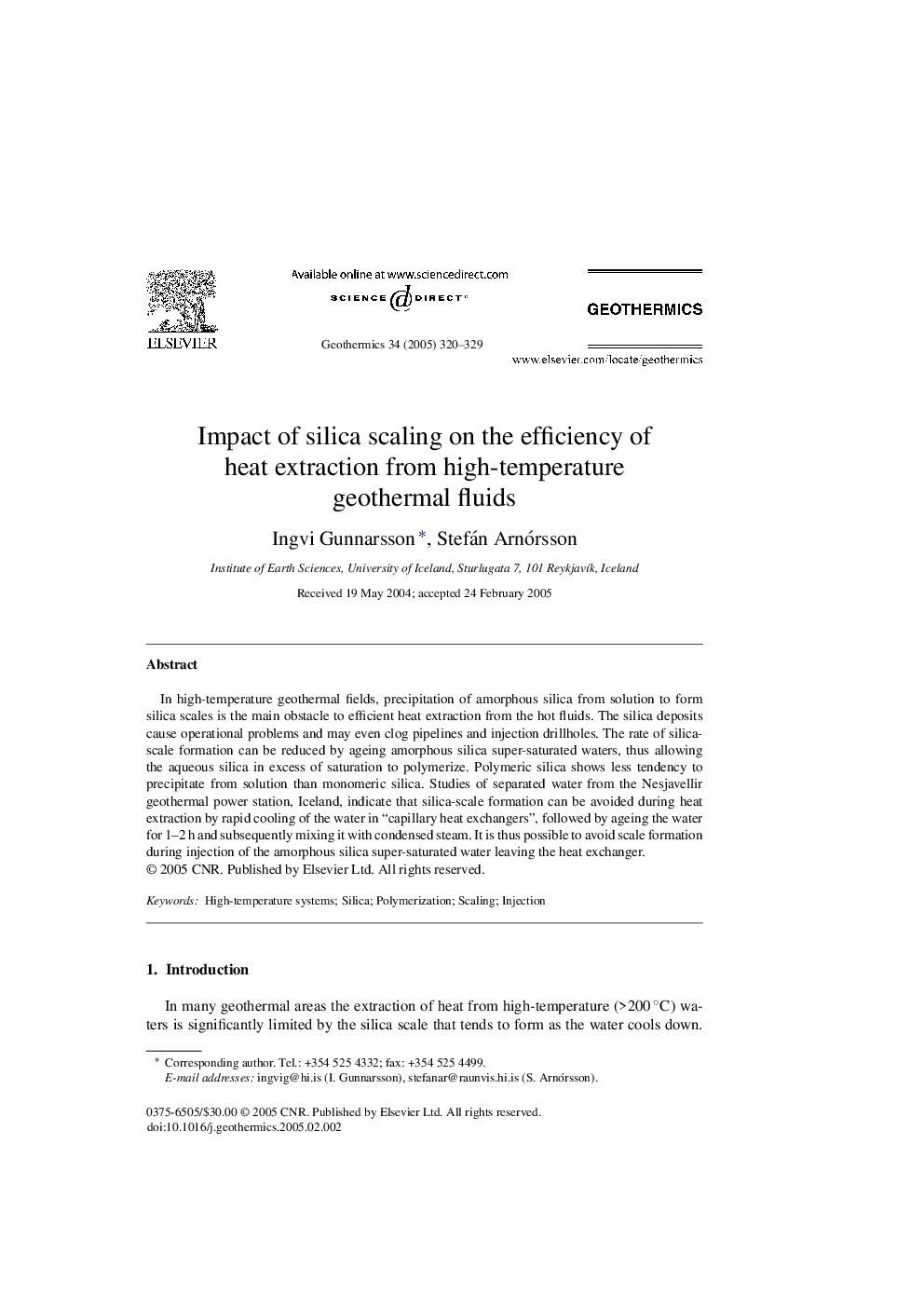| Article ID | Journal | Published Year | Pages | File Type |
|---|---|---|---|---|
| 10687668 | Geothermics | 2005 | 10 Pages |
Abstract
In high-temperature geothermal fields, precipitation of amorphous silica from solution to form silica scales is the main obstacle to efficient heat extraction from the hot fluids. The silica deposits cause operational problems and may even clog pipelines and injection drillholes. The rate of silica-scale formation can be reduced by ageing amorphous silica super-saturated waters, thus allowing the aqueous silica in excess of saturation to polymerize. Polymeric silica shows less tendency to precipitate from solution than monomeric silica. Studies of separated water from the Nesjavellir geothermal power station, Iceland, indicate that silica-scale formation can be avoided during heat extraction by rapid cooling of the water in “capillary heat exchangers”, followed by ageing the water for 1-2Â h and subsequently mixing it with condensed steam. It is thus possible to avoid scale formation during injection of the amorphous silica super-saturated water leaving the heat exchanger.
Keywords
Related Topics
Physical Sciences and Engineering
Earth and Planetary Sciences
Geochemistry and Petrology
Authors
Ingvi Gunnarsson, Stefán Arnórsson,
